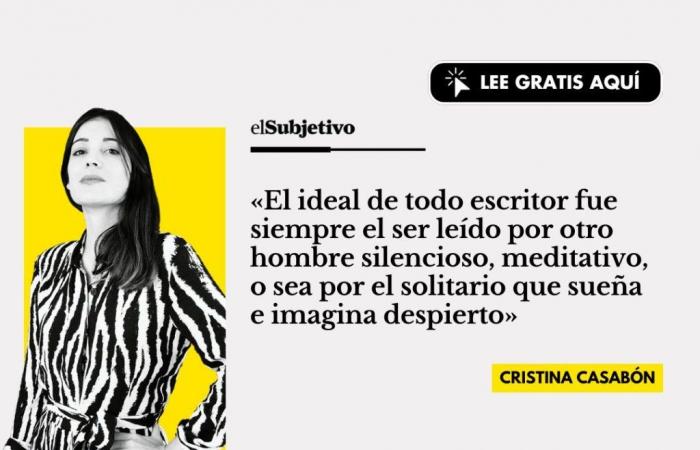The trees have blossomed in the middle of the Retiro, under the indifference of the readers who come to the book Fair, which is a pilgrimage. The row of booths was once colored and was installed on Paseo de Recoletos. We are the 21st century and sometimes one ignores that we continue to maintain a sacred habit: reading. Cemeteries of books will be our cities, night owls queuing to enter the Fair, Florida Park, stinking air coming out of the Metro, the clear sky of Ibiza, trees without land to expand. The Book Fair arrives and people come and go in the maelstrom or wait like somber and mature teenagers in line.
I walk around the Fair and see the one that has an audience of students, young people, and intellectuals, but I also see the one that has an audience of ladies waiting in line, and some deconstructed men. The Fair is a souk or medina where everyone sells a lot, which is why they give the cheapest books, but it is, of course, not the first time I have seen literature only for young ladies: Virginia Woolf, Henry James or Jane Austen They already specialized in this audience.
The quality of a book is measured today by the affluence and homogeneity of the masses. In a country where we socialize more than we read (and this is good and distinguishes us from the Norwegians), the Retiro, a huge park, is suddenly filled with readers because it is a good plan. But culture is not improvised nor is it too sociable and a good reader takes a lifetime to become, when learn to skip unnecessary pages and abandon a bad book.
People were put on their feet first by the revolution and now by consumption. All revolutions have died down and the consumerist revolution is nothing more than the compulsive habit of buying. There are booksellers and there are philologists who love books so much that they rub themselves with them.. Then we see the bustling mania of piling books on shelves on social media. The book only brings together the crowd when it is previously vulgarized, when it is transmuted into an object of decoration. Soon we will see in the squares a handful of eccentrics exchanging copies like philately fans do, with their stamp scams and their underground circuits.
People like stacked books and lots of them – Culturetas parade – because the public, mere quantity, is fascinated by the quantities, the prices, the colors, the offers. And when the book is signed… Are they going to meet the author? No, the author is known by reading. They are going to see the queue, to “feel” part of the queue, to be the first in the queue. Today, consumption is a way of belonging to the suburbs of the mythologized culture.
«The ideal of every writer was always to be read by another silent, meditative man, that is, by the solitary man who dreams and imagines while awake.»
But the spectacle of culture is actually quietude, it is silence and muteness, the navigation of thought. The ideal of every writer was always to be read by another silent, meditative man, that is, by the solitary man who dreams and imagines while awake.. But massification has come – not democracy – and culture has become a fair, it has become consumption. And those who don’t sell go to the Fair to sell themselves.
True democracy is that based on the genuine education of criteria. He is a citizen, as I say, with time, leisure, silence and respect to think from a solitary bench in Retiro. Books accompany us in our waking hours. The night, silent catastrophe, cautious collapse, the night hangs over the parked trains. The night is an uncomfortable silence, the sleepers are scared insects and the angels remind us that we can always return to the silence of reading. To the blue echo of its stone monasteries.






